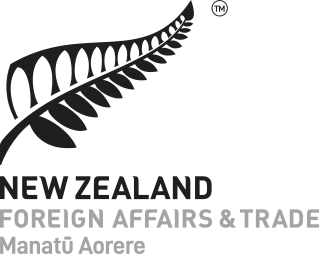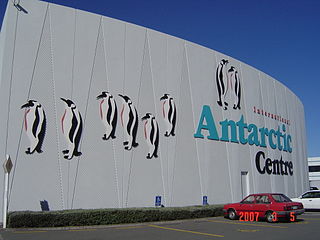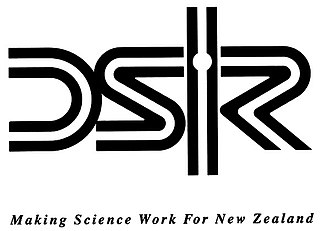
The politics of New Zealand function within a framework of an independent, unitary, parliamentary democracy. The system of government is based on the Westminster system, and the legal system is modelled on the common law of England. New Zealand is a constitutional monarchy in which King Charles III is the sovereign and head of state, while his prime minister serves as the head of government.

The Ross Dependency is a region of Antarctica defined by a sector originating at the South Pole, passing along longitudes 160° east to 150° west, and terminating at latitude 60° south. It is claimed by New Zealand, a claim accepted by the other six countries with territorial claims in Antarctica. Under the 1961 Antarctic Treaty, of which all territorial claimants are signatories, including New Zealand, all claims are held in abeyance. Article IV states: "No acts or activities taking place while the present Treaty is in force shall constitute a basis for asserting, supporting or denying a claim to territorial sovereignty in Antarctica or create any rights of sovereignty in Antarctica".

Scott Base is a New Zealand Antarctic research station at Pram Point on Ross Island near Mount Erebus in New Zealand's Ross Dependency territorial claim. It was named in honour of Captain Robert Falcon Scott, RN, leader of two British expeditions to the Ross Sea area of Antarctica. The base was set up as support to field research and the centre for research into earth sciences, and now conducts research in many fields, operated by Antarctica New Zealand.

Gerard Anthony Brownlee is a New Zealand politician and the 32nd speaker of the New Zealand House of Representatives. He was first elected as a member of the New Zealand House of Representatives for Ilam in 1996, representing the National Party. He became a list MP in 2020.

This is a timeline of the history of New Zealand's involvement with Antarctica.

Stuff Ltd is a privately held news media company operating in New Zealand. It operates Stuff, the country's largest news website, and owns nine daily newspapers, including New Zealand's second and third-highest circulation daily newspapers, The Post and The Press, and the highest circulation weekly, Sunday Star-Times. Magazines published include TV Guide, New Zealand's top-selling weekly magazine. Stuff also owns social media network Neighbourly.

The Realm of New Zealand is the area over which the monarch of New Zealand is head of state. The realm is not a federation but is a collection of states and territories united under its monarch. New Zealand is an independent and sovereign state that has one territorial claim in Antarctica, one dependent territory (Tokelau), and two associated states. The Realm of New Zealand encompasses the three autonomous jurisdictions of New Zealand, the Cook Islands, and Niue.

The Ministry of Foreign Affairs and Trade (MFAT) (Māori: Manatū Aorere) is the public service department of New Zealand charged with advising the government on foreign and trade policy, and promoting New Zealand's interests in trade and international relations.

The New Zealand Government is the central government through which political authority is exercised in New Zealand. As in most other parliamentary democracies, the term "Government" refers chiefly to the executive branch, and more specifically to the collective ministry directing the executive. Based on the principle of responsible government, it operates within the framework that "the [King] reigns, but the government rules, so long as it has the support of the House of Representatives". The Cabinet Manual describes the main laws, rules and conventions affecting the conduct and operation of the Government.
The Antarctic Heritage Trust (New Zealand) was founded in 1987 and is the oldest member of the Antarctic Heritage Trust coalition. The AHT-NZ is an independent charitable trust based in Christchurch, New Zealand. It was created to care for sites important to the history of the Heroic Age of Antarctic Exploration located in the Ross Sea region of Antarctica.

The International Antarctic Centre is a visitor attraction and public science discovery centre in the suburb of Harewood, Christchurch, New Zealand. It is located at Christchurch International Airport, adjacent to the buildings that are the Christchurch base for the Antarctic programmes of the US, New Zealand and Italy.
The Officials Committee for Domestic and External Security Coordination (ODESC) is a New Zealand government committee which gives the Prime Minister strategic policy advice on security and intelligence matters. Operational security matters are handled by other groups, including the Defence Force, the Ministry of Defence, the Security Intelligence Service, the Government Communications Security Bureau and Police.

The China–New Zealand relations, sometimes known as Sino–New Zealand relations, are the relations between China and New Zealand. New Zealand recognised the Republic of China after it lost the Chinese Civil War and retreated to Taiwan in 1949, but switched recognition to the People's Republic of China on 22 December 1972. Since then, economic, cultural, and political relations between the two countries have grown over the past four decades. China is New Zealand's largest trading partner in goods and second largest trading partner in services. In 2008, New Zealand became the first developed country to enter into a free trade agreement with China. In recent years, New Zealand's extensive economic relations with China have been complicated by its security ties to the United States.

Patricia Hekia Parata is a former New Zealand public servant, diplomat, and politician.

The Department of Scientific and Industrial Research (DSIR) was a government science agency in New Zealand, founded in 1926 and broken into Crown Research Institutes in 1992.

The New Zealand Antarctic Research Programme (NZARP) was a research programme that operated a permanent research facility in Antarctica from 1959 to 1996. It was created by the Geophysics Division of New Zealand's Department of Scientific and Industrial Research (DSIR), originally based in Wellington. The programme promoted research in geochemistry, zoology, geology, botany, meteorology, and limnology.

The 2017 New Zealand general election took place on Saturday 23 September 2017 to determine the membership of the 52nd New Zealand Parliament. The previous parliament was elected on 20 September 2014 and was officially dissolved on 22 August 2017. Voters elected 120 members to the House of Representatives under New Zealand's mixed-member proportional (MMP) voting system, a proportional representation system in which 71 members were elected from single-member electorates and 49 members were elected from closed party lists. Around 3.57 million people were registered to vote in the election, with 2.63 million (79.8%) turning out. Advance voting proved popular, with 1.24 million votes cast before election day, more than the previous two elections combined.

Gillian Shirley Wratt is a New Zealand botanist and science administrator. She was the first woman director of the New Zealand Antarctic Programme (1992–1996) and made a Member of the New Zealand Order of Merit for services to Antarctica.

Sir Brian Joseph Roche is a New Zealand business executive.

Christopher David Beeby was a New Zealand diplomat who held several ambassadorships and was involved in international litigation and negotiations, notably over Antarctic resources. Beeby was New Zealand's ambassador to Iran and to France and was a member of the World Trade Organization's Appellate Body from 1995 to his death in 2000. While ambassador to Iran, Beeby assisted American diplomats in the Iran hostage crisis.
















